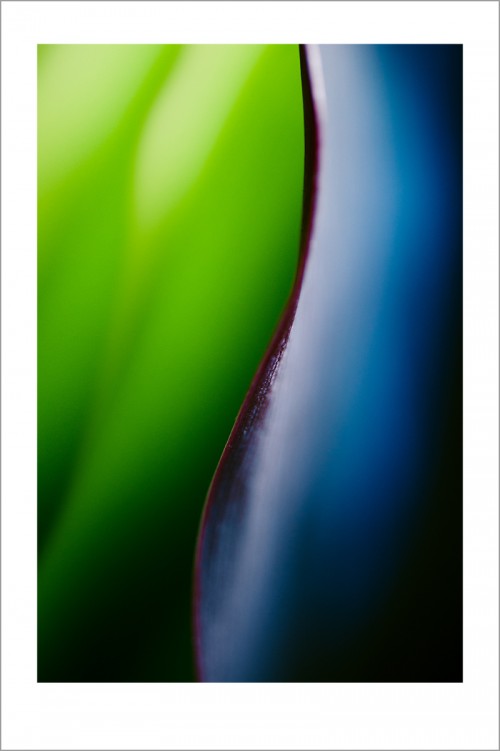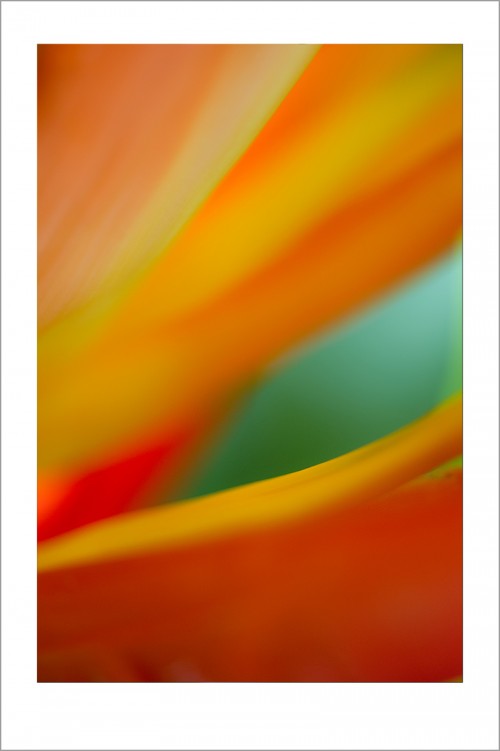I’m uncomfortable with the notion of mastery. It’s not that I don’t believe we can’t, in some broad way, master a craft – gain a level of comfort and expertise that the tools become an extension of ourselves and we wield them purely through muscle memory. I do. In fact if it’s that comfort that’s an indicator of our approach to mastery, then it’s only after 25 years that I now feel suggestions of that comfort in my own process.
I have a guitar in my loft. Once in a while I pick it up and play a disastrous and abbreviated version of Dust in the Wind. But I will never master it. Maybe I could. But I won’t. Because I’m not willing to put the time in. And that, above all, is what takes us – if we’re ever to get there – towards mastery. The time. Time to hold the camera in our hands for the 10,000 hours I keep hearing is required. Time to look at the resulting photographs and study them. Time to make really, truly, undeniably bad photographs, and learn from the mistakes. Time to make surprisingly beautiful ones and enjoy the delight of holding that print in our hands.
Maybe it’s not the notion of mastery I’m bothered by, but the focus on it. And perhaps, like many other things, I think it’s just the wrong goal. Mastery is a by-product of doing the thing we love, with growing skill, over a period (usually a long one. No, a whole year doesn’t count). It is the result of what we aim for, not the thing itself, and I think it’s an important difference because mastery gained from years of making photographs for the love of it will produce something very different from mastery gained simply from chasing mastery: heart. The pulse of an artist’s passion. The salt of tears and sweat. The photographs resulting from the one will be technically perfect, and perfectly forgettable; the photographs from the other will be human, resonant, beautiful. Unforgettable, even if imperfect. Perfection is over-rated, and not to be confused with mastery.
Mastery will not be gained, though it can be helped along, by reading books or listening to podcasts. It will not be found in the latest review of the latest camera, nor in that camera itself. It will be found somewhere after you put all that time in, all those many hours. Glamorous? I should think not, no. Pretty mundane at times, in fact. Which is why the Search for the Magic Wand takes up so much of our time. Why else do we spend so much time, and flood the internet 140 characters at a time, on every new piece of gear? I’ve got a camera. I’d be better off getting back to it. It’s sitting on my tripod in front of a vase of flowers, and nothing but closing Facebook and getting back to making photographs is going to help me learn my craft. Stuck in this foot cast and unable to go anywhere without crutches I’ve decided to focus on abstractions of colour and line right here at my kitchen table, to work towards the next 10,000 hours that anyone who finishes the first ten thousand not only knows is needed, but longs for. But I don’t do it because I need to, I do it because mastery, if I ever got there, would be arrived at quietly, and would satisfy me no more than any of the other landmarks I’ve arrived at along the way. I do it because I love making photographs themselves. They are the point.
Without bad-mouthing books and workshops, from which I make part of my living, I need to say this: most photographers these days have already read a lifetime’s worth of books and some of us have already taken too many workshops. If you’ve read the books and taken the workshops and you still feel no closer, then consider two things. Thing One: the closer you get to a mountain the larger it feels. Your intimidation may in fact be a sign that you’re closer than you thought. Thing Two: it could be that the books and workshops have become a crutch. They’re your safe place, and we don’t learn in those safe places. We learn when we step out from them, fall down, and get up again. Take what you’ve already learned in your head and step away from those teachers for a while – a year, even – to work it out and work it in. Mastery comes through the hands, not the head.
Your gear, for now, is good enough. You don’t need a better camera. You need to go make photographs. Don’t worry about mastery – it’ll come one day. You’ll wake up and find yourself more comfortable than you ever imagined. For now it’s enough that you fall in love with the photograph, and go make more of them. A million times better that someone be amazed at your photographs than at your technical prowess. Even more important that you love what you do than that you obsess about how you do it. If, one day, someone calls you a master, you’ll be too busy making photographs to take much notice.



Comments
really nice abstracts!
Greetings!
David, this hit me like a hammer: “the closer you get to a mountain the larger it feels. Your intimidation may in fact be a sign that you’re closer than you thought”
why didnt it occur to me. hope its true, since i’m awfully intimidated by quite a few TODOs
Thank you so much David – this is just what I needed to hear at this moment.
David,
I wish to find you, your Blog and books time ago, however it batter late than never.
Thank you.
Leo
WTF !!
?
I know- right?
David,
There’s an interesting tension between what you’ve written here on mastery and other postings on “imperfect practice makes you proficient at poor technique”. We need practice, we need to experiment, we also occasionally need guidance.
I believe that when we hit a roadblock in our journey as photographers, it’s because we have focussed on one of these three at the expense of the other two:
– attended a calendar-full of workshops only to find your photography hasn’t improved? Go out and shoot what you’ve learned for a while.
– been shooting regularly and find yourself at a creative roadblock? Experiment with a style you never shoot or go on a workshop to learn new techniques.
Mastery implies there is a destination. For me, this is a journey of self-discovery. The journey is the rewarding part. The photos I take are signposts along the path.
ps: These are some of the most beautiful photographs I’ve seen of flowers. Magnificent!
Thanks for the thoughts and the kind words. Mark.
I can’t explain how important I found this posting – to me anyway. The words that do come to mind – inspire, resonant, meaningful – all seem too trite and thoughtless. Suffice to say, it will be re-read many times.
Yep!
“Your first 10,000 photographs are your worst.” ― Henri Cartier-Bresson
Man you stir something in me, from time to time I get to this point and want to write something interesting and pithy to find at least three other guys have already better said what I had been thinking.
Another great post..reading your posts can be really encouraging for photographers like me who find this thing frustrating at times..when i start to feel like i will never get it..your thoughts..listening it from the master himself..gives hope…thank you…your abstracts are amazing…you have turned your injury into time to create these gorgeous art.
My daughter is only 13 months old and she still try to learn how to walk. For us – professionalists it`s obvious. But for her this is quite a challenge. So no books, no workshops and no www can help her. She needs to do it herself, she needs to find her way.
For me, same with photography.
Learn slowly, do it , because you like it, love it or maybe you have different reasons.
I was going to write a comment, but when it got to 400 words I decided to turn it into a blogpost. Instead, I’ll leave you with a quote.
“Country music isn’t nothing but three chords and the truth.” Harlan Howard
And a lot of twang, Fernando. A lot of twang. 🙂
You have a way of choosing words that get the rile up in me-
I used to study jazz guitar, went to school for it, studied with famous teachers, practiced 6 hours a day 6 days a week and just played for fun for 8 hours on the other day. Now after I’ve found myself living this other life with a camera one of the most important things is to not make it a contest. So ideas like mastery aren’t important anymore. Just to do it because it’s a passion is the point. To each their own- just be careful and considerate and try not to compare is what I do.
Wicked nice images by the way.
-Nate.
Inspirational, as always.
Thank you David!
First and foremost, very sweet abstracts. Really beautiful.
Not to be too wordy on the subject of mastery. At the end of my fairly long career in ceramics, someone would occasionally call me a “master.” I would thank them and hide a secret smile, because I knew I was very good at what I did, however, I specialty was high fire, reduction work.
Medium fire, I don’t know, low fire, I don’t know. I did know, however, that if I could work for another 300 years, I could still learn something new tomorrow!
Quite humbling, actually, but I must agree with you sir, the point is the work itself. Do it long enough, with dedication and integrity and you will achieve a certain mastery of your medium, but the real joy lies in “beginners mind” where each day is fresh and new with possibilities. At least to me…
Great post today (but then aren’t they all) and OMG the pics are super cool. The whole 10k hr thing is 40 years old. The 2 scientists who came up with the idea said this about it: There are no instant experts in chess—certainly no instant masters or grandmasters. There appears not to be on record any case (including Bobby Fischer) where a person reached grandmaster level with less than about a decade’s intense preoccupation with the game. We would estimate, very roughly, that a master has spent perhaps 10,000 to 50,000 hours staring at chess positions…” Sheech, and I thought 10k was a lot. That’s just scratching the surface. Let me do some quick calculations here…I’ll be, um, hang on, oh ya, 163 years old by the time I take a “masterful” image. MInd you, I’ll be in heaven by then so the subject matter will be interesting to say the least. Later…
David,
I love it when you articulate the random thoughts in my head that occur from time to time, into a coherent essay.
Thank you.
Bob
Well David, it seems we had the same thing for breakfast today. My thoughts are not quite as eloquently stated as yours, but there is certainly resonance there. Here’s what I wrote: http://www.fotozones.com/index.php/topic/1748-death-of-a-pixel-peeper/
Dallas – great point…now I have stopped asking photographers for their opinion 🙂
Once again you continue to delight and inspire me through your words as much as through your photographs. Thank you.
Davis, you have certainly achieved Mastery in inspiring. Thank you!
David it is. No Mastery in typing for me. 🙂